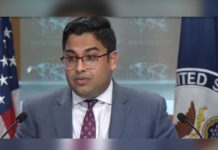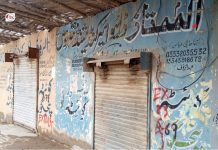Enforced disappearances are a distressing daily occurrence in Balochistan, primarily targeting youth, political activists, and students. Concerned Baloch parents have sent their children to educational institutions in Islamabad and Punjab to shield them from this threat. However, the disappearances of Baloch students have also continued to rise in Punjab and Islamabad since last two years.
The lack of access for human rights organizations and media in Balochistan allows the Pakistani authorities to deny the problem of enforced disappearances. Even the Pakistanj Prime Minister claims only fifty people have been forcibly disappeared. Meanwhile, Baloch students in Punjab face disappearances from their university premises, providing clear evidence of the issue. It raises the question of whether the authorities will continue to deny the harsh reality of enforced disappearances.
The Pakistan Human Rights Commission has voiced deep concern over the racial profiling, harassment and enforced disappearance of Baloch and Pashtun students in Lahore universities. Baloch and Pakhtunkhwa students studying in Punjab are particularly vulnerable to racial profiling and harassment. It is imperative that this practice be immediately halted, ensuring all students can pursue their education without fear.
The case of Farid Baloch, a student of Punjab University, who was forcibly disappeared from the university premises and later arrested in a dubious drug case, garnered public attention. In contrast, the case of Feroz Baloch, a student of Aired University, Rawalpindi, who has been missing for a year despite the orders of the Islamabad High Court, remains unaddressed.
Turbat has also seen the forced disappearance of four students, with protests in Quetta demanding the recovery of Sohail and Faseeh Baloch, students of Balochistan University who have been missing for two years. Balochistan’s students live in constant insecurity, and the Pakistani authorities continue to deny this serious issue instead of taking action to end enforced disappearances. In these circumstances, international human rights organizations must shoulder greater responsibility in resolving the Balochistan crisis.





























